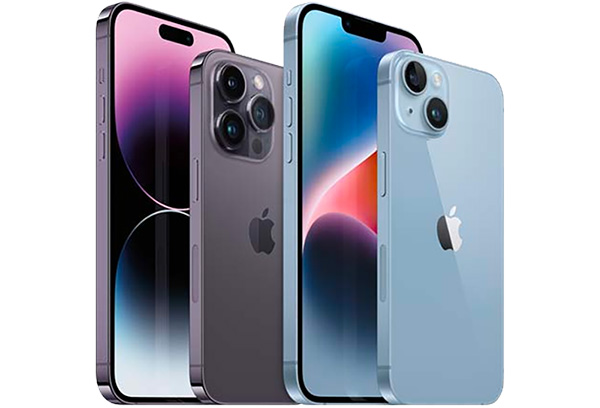Introduction:
In today’s fast-paced digital age, smartphones have become an indispensable part of our lives, with the iPhone being one of the most popular choices among users. However, like any electronic device, iPhones are susceptible to damage and malfunction over time. When faced with a cracked screen, a malfunctioning camera, or a dead battery, many iPhone owners consider the option of repairing their devices themselves. While the DIY approach might seem appealing at first glance, there are several compelling reasons why individuals should think twice before attempting to repair their iPhones on their own.

Risk of Further Damage:
The first and most significant reason to avoid DIY iPhone repair is the risk of causing further damage to the device. iPhones are intricate pieces of technology, with delicate components carefully integrated into a compact design. Without proper knowledge, experience, and tools, attempting to repair an iPhone can easily result in irreparable harm. For instance, mishandling the delicate circuitry or applying excessive force during disassembly can lead to short circuits, component damage, or even render the device completely inoperable.
Furthermore, many iPhone components are intricately connected, meaning that a mistake in one area could have cascading effects throughout the device. While repair guides and tutorials are readily available online, they often fail to provide the nuanced understanding required to navigate the complexities of iPhone repair successfully. Even a seemingly straightforward task, such as replacing a cracked screen or a worn-out battery, can quickly spiral into a costly disaster if not executed with precision and care.
Voiding Warranty and Risking Insurance Coverage:
Another critical consideration when contemplating DIY iPhone repair is the potential consequences for the device’s warranty and insurance coverage. Most iPhones come with a limited warranty from the manufacturer, which typically covers defects in materials and workmanship for a specified period. Attempting to repair the device oneself, or seeking repairs from unauthorized third-party technicians, can void this warranty, leaving the owner with no recourse in the event of future issues.
Similarly, many iPhone owners purchase additional insurance or protection plans to safeguard against accidental damage or hardware failures. However, these insurance policies often come with specific terms and conditions regarding repair and replacement services. Engaging in DIY repairs or seeking assistance from unauthorized repair shops may nullify coverage under these policies, leaving the owner solely responsible for any repair or replacement costs.
Moreover, even if the DIY repair is successful, the iPhone’s resale value may be significantly diminished due to the lack of official documentation or proof of professional servicing. Potential buyers are often wary of purchasing refurbished or repaired devices without a valid warranty or service history, further reducing the device’s marketability and value.
Safety and Legal Concerns:
Beyond the potential damage to the device and ramifications for warranty and insurance coverage, DIY iPhone repair can also pose safety risks to the individual attempting the repair. iPhones, like many electronic devices, contain components that can be hazardous if mishandled or improperly disposed of. For example, lithium-ion batteries, commonly found in smartphones, have been known to overheat, combust, or explode if punctured or subjected to extreme conditions.
Furthermore, certain repair procedures may require the use of specialized tools, chemicals, or adhesives that can pose health hazards if not used correctly. Without proper safety precautions and protective equipment, individuals risk exposure to toxic substances, electrical shocks, or other physical injuries during the repair process.
Additionally, there are legal considerations surrounding DIY iPhone repair, particularly concerning intellectual property rights and liability. Apple, the manufacturer of iPhones, closely guards its proprietary designs, technologies, and software, often employing legal measures to protect its interests. Engaging in unauthorized repairs or modifications may infringe upon Apple’s intellectual property rights, potentially leading to legal action or civil penalties.
Experiencing splash troubles with your device? Don’t worry, Dive into swift solutions with Digimob Mobile Repair! Visit www.digimob.com.au to locate your nearest Digimob location and connect with our expert team to promptly resolve any issues. Your device’s lifeguard is just a click away! 🌊📱

Conclusion:
While the prospect of saving money and gaining a sense of accomplishment may tempt some iPhone owners to attempt DIY repairs, the risks far outweigh the benefits. From the potential for further damage to the device and the loss of warranty and insurance coverage to the safety hazards and legal implications involved, there are numerous compelling reasons to leave iPhone repair to professionals. Instead of risking irreparable harm to their beloved devices, individuals are better served by seeking assistance from authorized Apple service providers or reputable third-party repair shops. By prioritizing safety, legality, and peace of mind, iPhone owners can ensure that their devices receive the expert care and attention they deserve.
Frequently Asked Questions (FAQs)
Can I save money by repairing my iPhone myself?
While it’s possible to save money initially, DIY iPhone repair carries the risk of causing further damage, potentially leading to costlier repairs in the long run. Professional repair services often offer warranties and guarantees, providing added value and peace of mind.
Will repairing my iPhone myself void its warranty?
Yes, attempting DIY repairs or seeking unauthorized repairs can void your iPhone’s warranty. It’s essential to weigh the potential savings against the risk of losing warranty coverage, especially for expensive repairs or replacements.
Are DIY iPhone repair kits reliable?
DIY repair kits vary in quality, and some may not include all the necessary tools or components for a successful repair. Additionally, inexperienced users may struggle to follow complex instructions, increasing the likelihood of errors and damage to the device.
Can DIY iPhone repair be dangerous?
Yes, DIY iPhone repair can pose safety risks, especially when handling delicate components, sharp tools, or hazardous materials like lithium-ion batteries. Without proper precautions and expertise, individuals risk injury, electrical shocks, or exposure to toxic substances.
What are the legal implications of DIY iPhone repair?
Engaging in unauthorized repairs or modifications may infringe upon Apple’s intellectual property rights and could result in legal action or civil penalties. It’s essential to consider the legality of DIY repairs and consult reputable sources for guidance to avoid potential legal issues.


